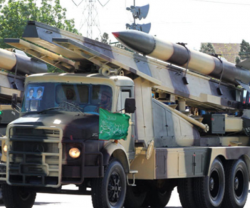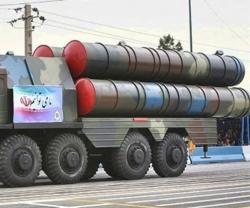“In the civil defense week, five specialized exercises will be staged to test the readiness of emergency electricity generators, cyber preparedness for infrastructures, biological defense, ports and coasts, and modern threats in metro stations,” Brigadier General Jalali said.
He further pointed out that some of the drills were also staged last year. “As regards the drills to test the preparedness of electricity generators, last year we suddenly cut the power of Natanz nuclear site, the telecommunication (center of the country) and Jamaran site to see the level of their preparedness,” he said.
Jalali said the biological defense also started concurrent with the arrival of Hajj pilgrims from Mecca to test illnesses such as SARS. SARS or Severe acute respiratory syndrome is a viral respiratory disease of zoonotic origin caused by the SARS coronavirus (SARS-CoV.)
Earlier this year, General Jalali had announced that Iran was planning to stage cyber exercises in the near future.
“The cyber maneuvers bylaw has been prepared and will be circulated among the relevant organizations in a bid to improve and materialize the civil defense objectives in the field of cyber,” Jalali said, addressing a seminar of civil defense director-generals of different Iranian provinces.”
He noted the Civil Defense Organization also plans to set regulations in the near future for the country’s vital infrastructures in a bid to achieve complete safety in the cyber field.
“Vital infrastructures fall within the first layer of the information technology and if they stop functioning, it will cause danger at national security level,” he added.
In the last few years, various Iranian industrial, nuclear and government bodies have come under growing cyber attacks, widely believed to be designed and staged by the US and Israel.
Wide-scale cyber attacks on Iranian facilities started in 2010 after the US and Israel tried to disrupt the operation of Iran's nuclear facilities through a worm which later came to be known as Stuxnet.
US intelligence officials revealed in April 2012 that the Stuxnet malware was not only designed to disrupt Iran's nuclear program, but was part of a wider campaign directed from Israel that included the assassination of the country’s nuclear scientists.
In March 2012, the Islamic Republic of Iran announced plans to strengthen its cyber power by establishing a Supreme Council of Cyberspace to defend the country against cyber attacks.






















